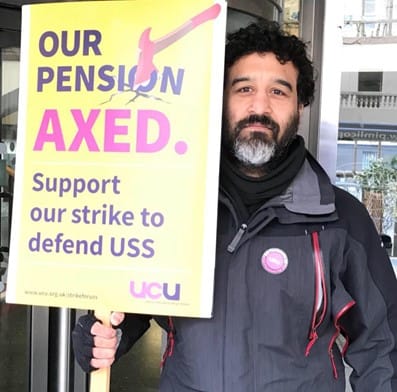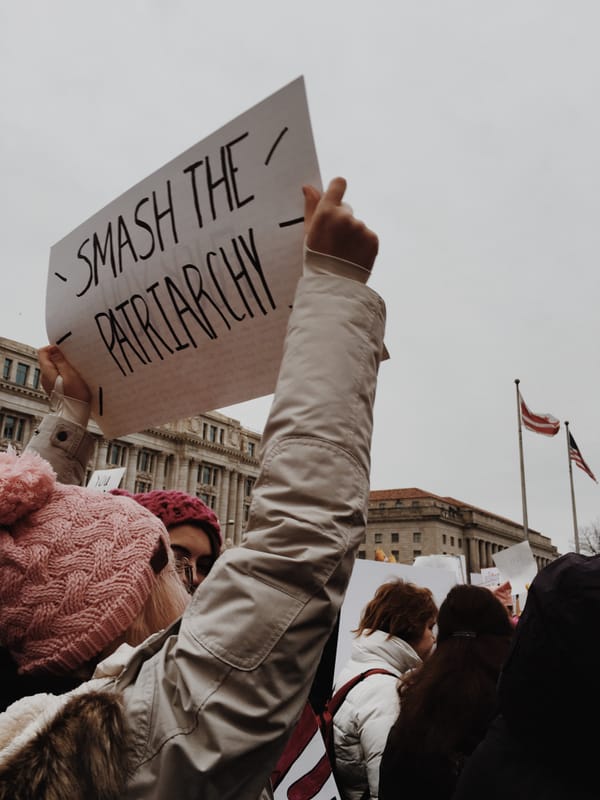UCU Strikes Are an Unfortuate Last Resort
Our lecturers, teachers, administrators, technical staff, and researchers are voting on whether to go on strike.

It really doesn’t have to be this way. Staff members of the University and College Union (UCU) voting on whether to go on strike over huge cuts to pensions. But that is what is happening, at Imperial, and in universities across the UK. Voting started on 18th October and runs until Thursday 4th November. If enough votes are in favour, lecturers, teachers, administrators, technical staff, and researchers will be taking the drastic step of withdrawing their labour and forming picket lines to pressure university management to stop their severe and unnecessary cuts.
...set to lose around 45% of their guaranteed pension income
No-one wants to strike. It is always a last resort. Unfortunately, staff are having to consider industrial action due to intransigence by university employers — including Imperial — and their refusal to take an evidence-based approach to the University Superannuation Scheme (USS) pension scheme.
The USS pension scheme
A Defined Benefit pension scheme like the USS is a form of “deferred pay”: an employee agrees to defer, or put aside, some of their salary now, in return for a guaranteed income — a proportion of their average salary over their career — on retirement. Most academic and academic-related staff in pre-1992 universities in the UK, including Imperial College, are members of the USS. An employee and their employer make contributions into the scheme, which are collectively invested and, when the employee retires, their pension is paid out of collective USS assets. Imperial College — as part of the university employers’ organisation Universities UK (UUK) — wants to slash the benefits to its employees. The UCU estimates that, for example, a 35-year-old lecturer starting work now on spine point 29 at Imperial College is set to lose around 45% of their guaranteed pension income. This can be seen using an online UCU modeller for predicting pension benefits.
What is the dispute over?
Pensions are complicated. But in this case, this time around, UCU believes that the situation is relatively simple.
The main organisations involved in the current dispute are USS itself, UUK (representing employers), UCU (representing working and retired members of USS) and the Government via the Pensions Regulator (tPR). The Regulator requires USS to assess the value of its fund every 3 years to decide whether they’re making prudent assumptions about how the fund will behave in the future, and whether it can pay out the pensions that it has guaranteed to pay. The last valuation was in 2018. USS then opted to perform an early valuation, in March 2020, just as the stock market fell due mainly to uncertainties caused by the global coronavirus pandemic. USS’s March 2020 valuation reported a deficit of £15.4bn. UCU and other commentators have criticised this valuation as unscientific and unreliable, as well as being untimely.
However, UCU and its members are on very strong ground: even if one takes this March 2020 headline deficit of £15.4bn, calculated by the flawed USS methodology, at face value, 17 months later on in August 31st 2021, USS assets were valued at £89.6bn which is £23.1bn higher than in March 2020:
The prima facie evidence is that USS is now in surplus by many billions. And a more sensible scientific valuation methodology — as recommended by the Joint Expert Panel (JEP) set up after the 2018 strike over USS — would likely show USS now to be in surplus by even more.
The scarcely credible situation right now is that Imperial College supports slashing its employees’ pension benefits on the basis of a valuation in 2020 that has been overturned by the events of the last year and a half. It is totally unnecessary. Staff are asking employers to not make the cuts and to work with UCU to make these damaging disputes a thing of the past. But employers are going ahead anyway. When pension cuts were proposed by UUK in 2018, on the basis of similarly flawed arguments, members of UCU went on strike to defend their pensions and won: the proposed cuts were not made and the JEP was set up, giving staff hope that economic sense, financial sense, scientific rigour, and greater transparency would prevail at USS. But now in 2021, even more severe cuts are being proposed on even flimsier grounds.
What is happening now and what you can do
If the vote for industrial action is successful, UCU will go back to UUK and USS after 4th November and ask them to withdraw the planned cuts and work together. If they don’t then we’ll be in the situation no-one wants, and UCU members will withdraw our labour and picket campus. If staff do go on strike, we will be standing up for ourselves and for the College which needs a good, affordable, guaranteed pension scheme so that people want to work here and so that an academic or academic-related career is desirable and attainable for future generations. But we don’t want to strike. You can help by writing to the Provost and President to ask them to be scientific, to look at the evidence and to show leadership by asking that UUK work with UCU to avoid this dispute.
Vijay Tymms, Principal Teaching Fellow in Physics, and branch president of Imperial College UCU.
With thanks to colleagues for feedback on the initial draft.









